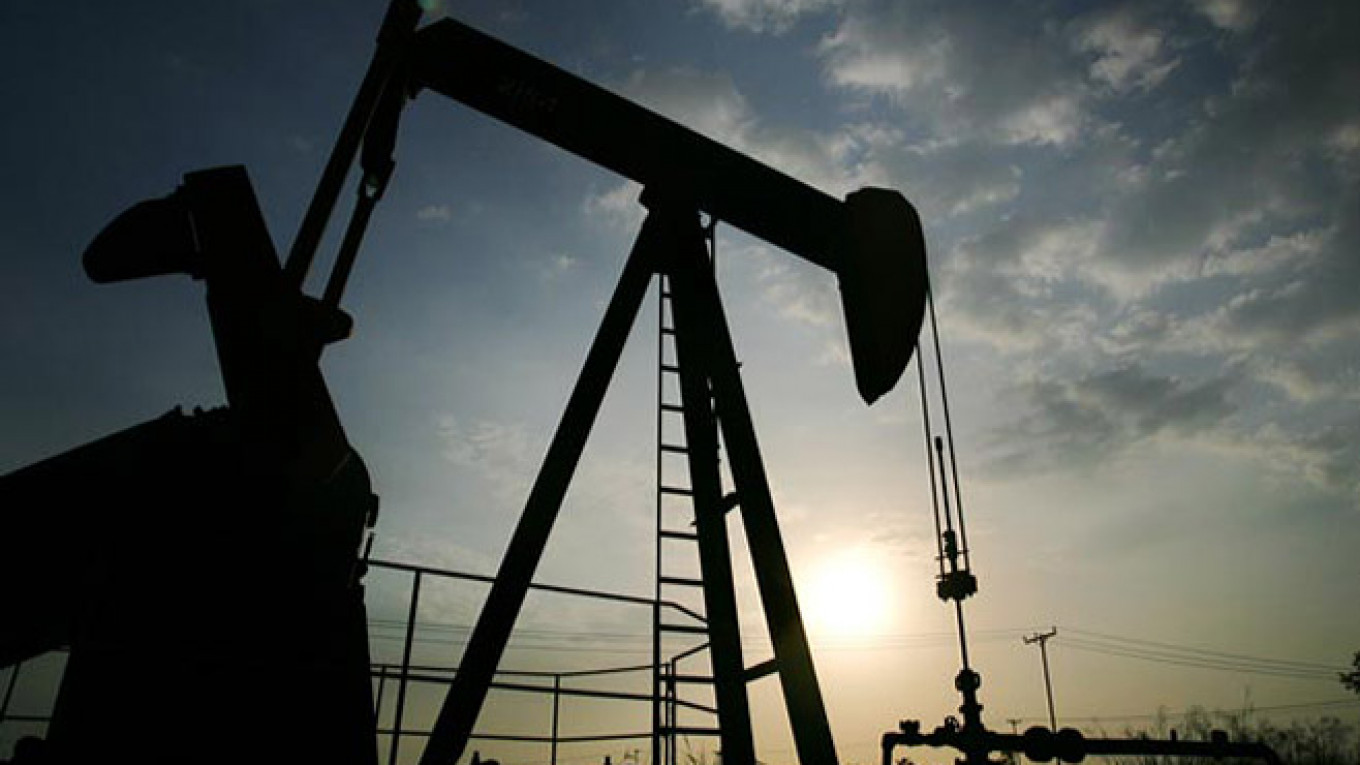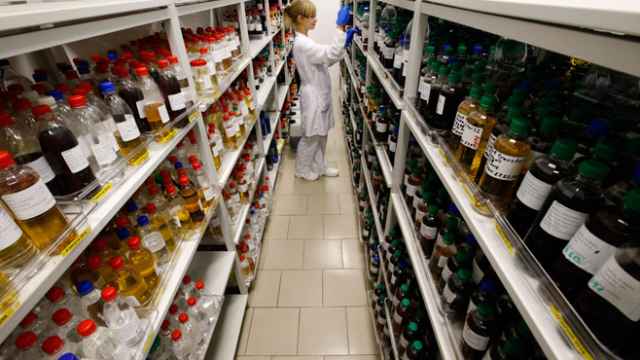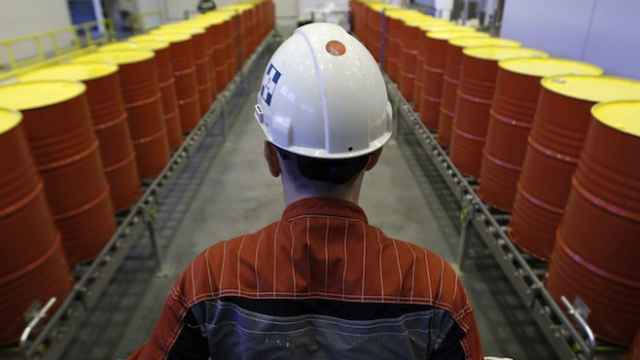While most oil-dependent economies are likely to suffer under the low and volatile oil prices predicted for next year, analysts paint a particularly dark picture for Russia, which is under the additional pressure of a faltering economy and Western sanctions over Ukraine.
At the end of last week brent oil, the global benchmark, traded at below $62 per barrel, hitting a new five year minimum. Oil prices continue to plummet from their peak in mid-2014 as supply exceeds demand, further buckling under OPEC's decision in November not to curb production.
"Moving into 2015, we see downside risks to energy prices on the back of OPEC's decision to allow the market to "stabilize itself." This could result in lower oil prices but also higher price volatility," Bank of America Merrill Lynch said in its commodities outlook released last week.
The bank reduced its 2015 Brent crude oil forecast to an average of $77 per barrel and WTI forecast to $72 per barrel.
Against the backdrop of falling prices, global oil supply and demand will likely stay in balance next year, according to the International Energy Agency's Oil Market Report for December released on Friday.
Only in Russia will the plunge in oil prices, along with Western sanctions and a collapsing economy, result in a decline in both production output and demand, the report said.
The International Energy Agency revised Russia's oil demand for next year down 5.5 percent, to 3.4 million barrels a day and production output down 70 thousand barrels per day, prompted by "price declines, sanctions and a falling ruble," the agency said in a statement.
U.S. and EU sanctions over Moscow's role in the Ukraine crisis have dried up foreign financing and helped spur inflation past 9 percent for 2014. The ruble has fallen over 40 percent to the U.S. dollar since January, buffeted by the falling oil price and geopolitical pressure.
Part of Russia's oil production slump could be attributed to Russia's biggest oil producer, state-owned Rosneft. Last month, Rosneft reported production output was decreased by 25 thousand barrels a day.
Production could be wound down further depending on the level of demand and oil prices, Igor Sechin, the head of the company, said in November.
Leonid Fedun, vice president of Russia's biggest private oil producer LUKoil, earlier estimated that Russia's oil production could decline 6.6 percent in the next four to five years, from the current 525 million tons per year to 490 million tons.
As conventional oil fields become depleted, producers in Russia are forced to tap into hard-to-reach reserves, which require both Western technology, currently unavailable due to sanctions, and higher level of investment. If oil prices continue on their downward trend, development of many of these fields will be economically unviable, further decreasing production output, analysts said.
"If oil prices stay below $65 per barrel for a prolonged period of time, development of many of these reserves will be hampered or even frozen, which will make Russia's [resource-dependent] economy more vulnerable in the long run," said Pavel Simonenko, sales director for Russia and the CIS countries at Dukascopy Bank, a Swiss Forex trading and investment bank.
Falling oil productions means less revenue both for oil companies and the government, which relies on oil exports for 40 percent of its income.
In the wake of a continued decline in oil prices and their increased volatility, Russia's economy could contract by 0.7 percent in 2015 and grow by only 0.3 percent in 2016, according to the World Bank's baseline prediction, released last week.
"For companies in the natural resource sector, lower oil and commodity prices are expected to negatively affect investment decisions. For the first time since 2009, consumption is expected to decline, following a negligible expansion in 2014," Birgit Hansl, World Bank's lead economist on Russia said in a statement accompanying the report.
Russia's economy could avoid recession next year if oil prices grow to $85 per barrel in 2015 and to $90 per barrel in 2016, which is the bank's most optimistic scenario.
But most analysts did not expect the prices to climb this high in the near future, as global oil demand is unlikely to soak up the rising oil supply from the Middle East and the U.S.
Contact the author at a.panin@imedia.ru
A Message from The Moscow Times:
Dear readers,
We are facing unprecedented challenges. Russia's Prosecutor General's Office has designated The Moscow Times as an "undesirable" organization, criminalizing our work and putting our staff at risk of prosecution. This follows our earlier unjust labeling as a "foreign agent."
These actions are direct attempts to silence independent journalism in Russia. The authorities claim our work "discredits the decisions of the Russian leadership." We see things differently: we strive to provide accurate, unbiased reporting on Russia.
We, the journalists of The Moscow Times, refuse to be silenced. But to continue our work, we need your help.
Your support, no matter how small, makes a world of difference. If you can, please support us monthly starting from just $2. It's quick to set up, and every contribution makes a significant impact.
By supporting The Moscow Times, you're defending open, independent journalism in the face of repression. Thank you for standing with us.
Remind me later.






